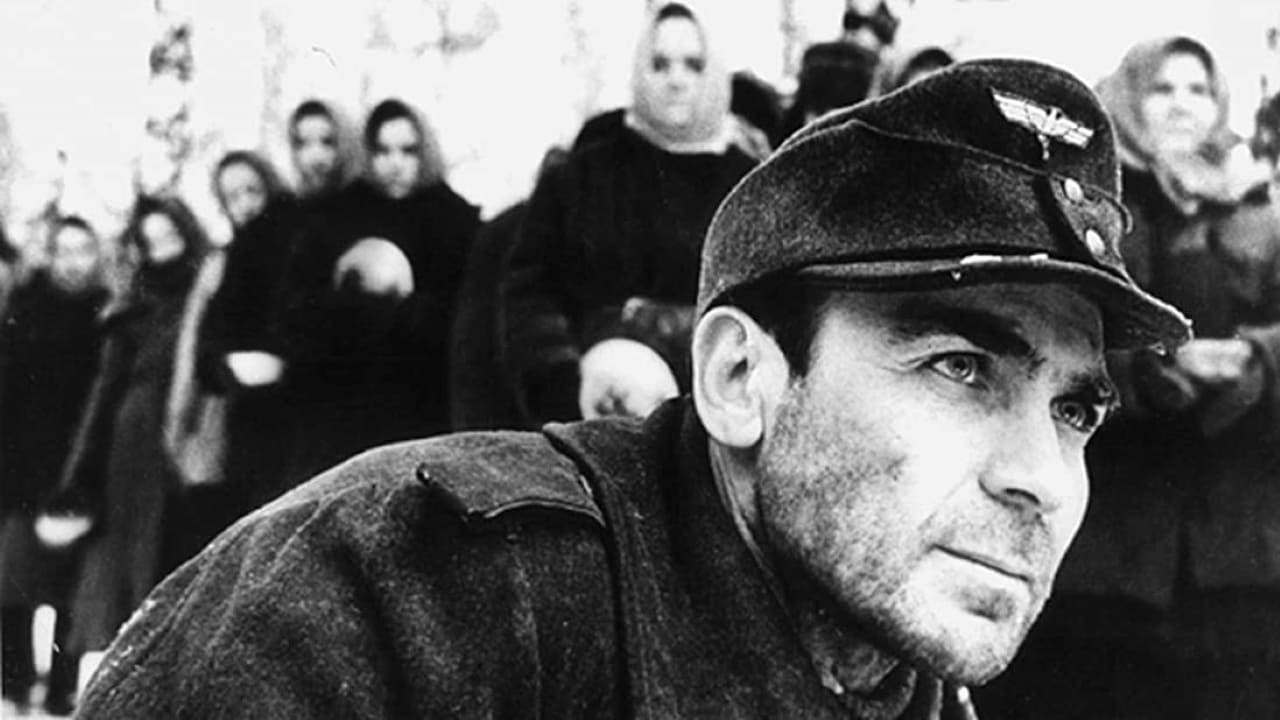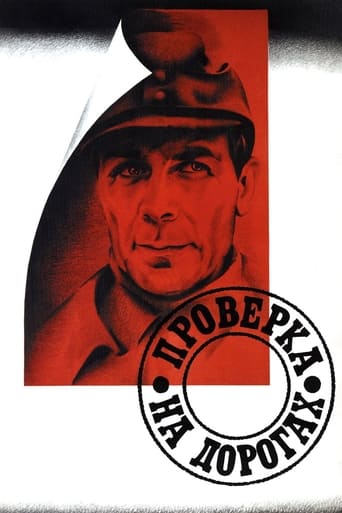Matialth
Good concept, poorly executed.
Rio Hayward
All of these films share one commonality, that being a kind of emotional center that humanizes a cast of monsters.
Lidia Draper
Great example of an old-fashioned, pure-at-heart escapist event movie that doesn't pretend to be anything that it's not and has boat loads of fun being its own ludicrous self.
Roxie
The thing I enjoyed most about the film is the fact that it doesn't shy away from being a super-sized-cliche;
florinc
I don't recall hearing any music in the film, except for people playing IN the film, not for the film. This is good, cause music distracts. War takes ordinary people to extraordinary situations where the real soul can be discovered. It felt natural for me to walk into the frame and participate in the dilemmas of everyone in the film. And I was not sure what I would have done in similar situations. I, simply, lack the capacity to fully absorb the depths of the soul searching in the film. It has not the brutality of Klimov, nor the conscience drama of Shepitko, but it has the same depth of penetration into the human soul at those defining moments. Just to set my scale, 10 goes to Andrei Rublev. It is NOT on a par with Klimov's "Come and see", nor with Shepitko's "Ascent".
Red-125
The Russian film Proverka na dorogakh was shown in the U.S. as "Trial on the Road (1971)". It was co-written and directed by Aleksey German. An exact English title of this movie is apparently difficult to achieve. On the film itself, the title was translated as "Checkpoint." Other Russian-speaking reviewers mentioned this title problem, and I heard it being discussed in the theater after the movie was over. People feel that "Trial on the Road" doesn't work either. I can't comment further, because I don't speak Russian.The movie was produced in 1971, but not shown until 1986. It was censored because the official party line in 1971 was that all Russian soldiers--actually, all Russians, soldiers or not--had performed heroically during the German invasion in WWII. This movie is more like an American WWII portrayal of GI's who were ordinary people caught in an extraordinary situation. Sometimes they behaved heroically, and sometimes they didn't. (Think about "Saving Private Ryan.")In this movie, the protagonist is someone who behaved unheroically. He surrendered to the Germans, and became a collaborator. (Apparently, some POW's could join the German forces.) After having a change of heart, he escapes from the Germans and joins the partisans, in Russia, behind the German lines. Naturally, the partisans are suspicious of him, and the plot of the film hinges on that suspicion and his reaction to it.In a parallel plot line, the civilians in German-occupied territory are not all sympathetic with the partisans. Like so many conquering forces, the Germans carried out mass reprisals. If the partisans killed a German soldier, the Germans would retaliate by killing and blowing up everything in sight. Naturally, some of the civilians took a "plague on both your houses" position. Their hope was to somehow survive the war, and they were no more sympathetic to the partisans than they were to the Germans.In my opinion, what made the censors dislike this movie is one of the factors that make this movie great. Naturally, I have to speculate, but my guess is that the real situation in Russia in WWII was closer to what we see in the film than what we see on the propaganda posters.This film has other positive aspects. The (black and white) cinematography is great, and the acting is excellent. The movie keeps you in suspense throughout, and I could not have predicted the ending. (The last few minutes go beyond the actual ending. They have that added-on propaganda feel to them. This is probably because director German wanted his film to pass the censors. Obviously, this added footage didn't work, at least for the first 15 years.)We saw the movie on the large screen at the wonderful Dryden Theatre in George Eastman House in Rochester, NY. The staffperson who introduced the movie told us that Eastman House owns the only 35mm print in the U.S. (The print belongs to Martin Scorsese, who stores all the movie prints that he owns at Eastman.) In any case, you'll have to be very lucky--as we were--to see this film in 35mm. Unfortunately, in this context, it's really meant for viewing in a theater. However, it's available on DVD, so at least you can seek it out and view it on the small screen. Director German made only six films. He is a genius, and it would appear that each of his films reflects that genius. My suggestion--find this movie and see it. If you like it, try to see the other five.
donita51
Despite its age, this is a very good film. The story of the Russian and Ukrainian soldiers who defected to the German side to fight with General Vlasov against the hated Bolsheviks has not been shown in many films, so this one is a welcome addition.Some reviewers have puzzled over the question why the film's distribution was held up for 14 years, made in 1971 and released only in 1985. The answer seems fairly obvious: this is a political film, which is not shy about showing NKVD officers in a less-than-flattering light. Furthermore, while patriotic, it stresses the human and personal aspects of life and it is almost Christian in its theme of crime and redemption. 1971 USSR under Brezhnev what still not ready for those ideas, hence the hold-up.While the acting is fairly wooden by modern western standards, the dialogue rings true but the real appeal lies in the breathtaking cinematography, showing the wintry expanses of Russia in an almost palpable way, so much so that the viewer can almost feel the cold wind blowing.For WW2-films buffs and for students of Soviet cinema this film is a must, but others interested in stories about humanity, redemption and moral choices will benefit from viewing it as well.
Rave-Reviewer
During the Second World War a Russian soldier, previously forced into collaboration with the Germans, escapes and joins the partisans but first has to prove his reliability. One of a number of films to re-emerge in the mid 80s, having been suppressed for being too challenging. The particular sin of this war film was to suggest that Stalin's policy of automatically shooting POWs on recovery was callous and ignored questions of conscience, treating all soldiers as potential traitors. It also shattered the idea, long upheld, of a united Soviet Union fighting the German devil: here the peasantry would prefer to be left alone by both sides since association with one brings reprisals from the other.

